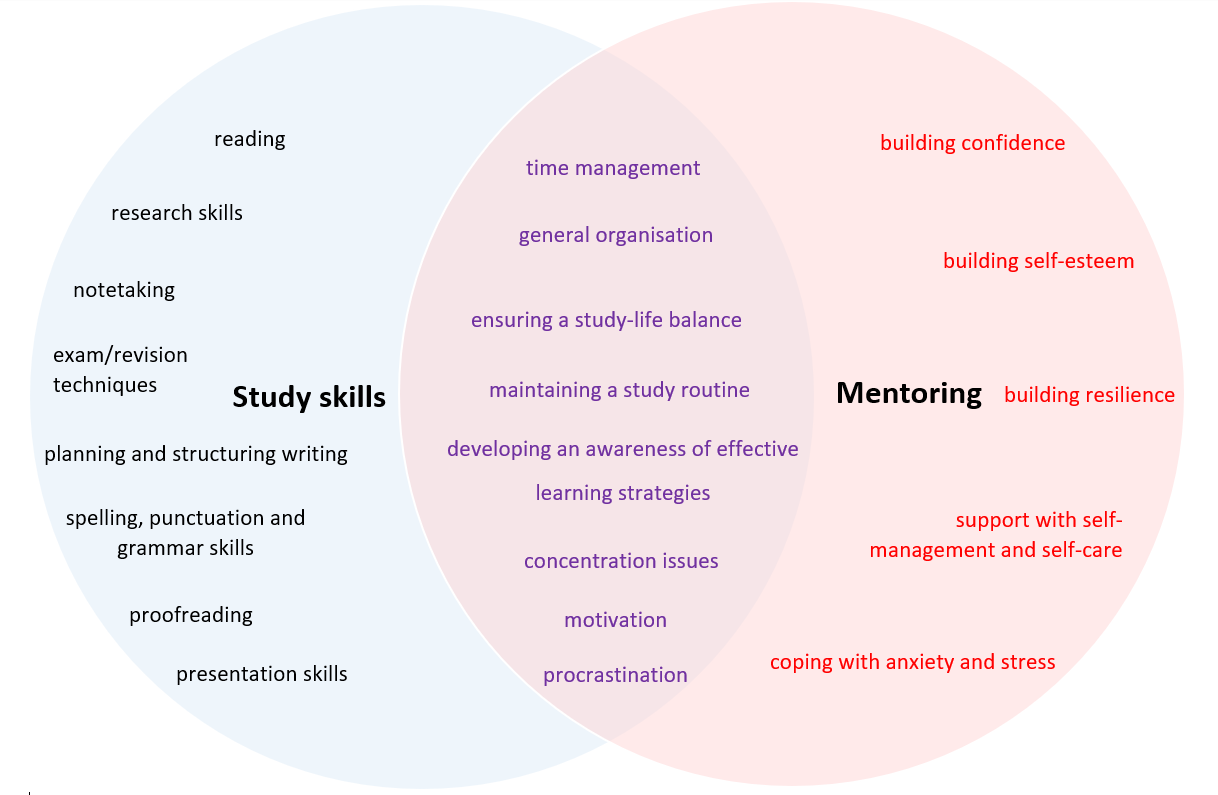
Autism
Contact us for support
If you would like to discuss support for Autism Spectrum Condition and the impact of this on your studies, please contact DDS to make an appointment to meet with a Disability Adviser (Mental Health and Autism).
What is Autism?
Autism is classified as a neurodevelopmental disorder (DSM-5, 2013; ICD-11, 2019) and is a spectrum condition that affects people in different ways.
Queen Mary University of London (QMUL) has two dedicated Disability Advisers (Mental Health and Autism) within the Disability and Dyslexia Service who are the first point of contact for students who have an autism diagnosis or who think they might be on the spectrum.
If you would like to discuss support for Autism Spectrum Condition and the impact of this on your studies, please contact DDS to make an appointment to meet with a Disability Adviser (Mental Health and Autism).
We offer a ‘drop-in’ session for quick or urgent queries, where you do not need to book an appointment in advance. These take place on Thursdays between 2-4pm. Please come to Room 3.06 in the Francis Bancroft Building, Mile End Campus for a slot, on a first come, first served basis.
Please note: at times, this may need to be adapted to an online same-day 20 minute appointment on MS Teams, depending on government advice relating to the Covid-19 pandemic, to minimise the number of people in our office. To reserve an online slot, please email dds@qmul.ac.uk or call 0207 882 2756 on a Thursday morning to put your name on the list. Slots are available on a first come, first served basis.
For longer or less urgent queries, you can book a regular appointment.
Specialist Mentoring
Access to specialist mentoring can support with a student’s mental health alongside supporting their studies. Key focus areas are usually building self-esteem, building resilience, self-care, coping with stress and anxiety triggers alongside time management, revision techniques and notetaking, changes in routine, communicating effectively etc.
Specialist 1:1 Study Skills Support
The sessions are designed to provide students with tools to develop their independent skills to organise and manage their time and be able to produce coursework and assessments which are commensurate with their underlying ability.
Please see the diagram below which outlines the two different strands of support and where they crossover.
Social Circle
Social Circle is a module on QMPlus intended for students on the autism spectrum. Any Queen Mary student can access the general information within the Social Circle module using their QMPlus login.
*The module is currently undergoing a reshape, to best meet the needs of our students on the autism spectrum. Watch this space for more information.*
PASS - Peer Assisted Study Support (for first-year undergraduates)
PASS is a course-based mentoring scheme, run for students by students. It gives first-years the opportunity to discuss study-related problems and get general advice from higher-year undergraduates in their subject. The scheme is firmly established at Queen Mary with 14 departments/schools running regular sessions.
Buddy Scheme
Starting university can leave you with a lot of questions, many of which current students are the best equipped to answer!
Buddy Scheme mentors are trained to support new students settle into university life, unburden some of your worries and help you to integrate into Queen Mary life, making sure you truly enjoy your time here.
Why have a mentor?
Feeling positive, happy, and knowing that you have someone you can rely on can have a major impact on your academic performance – having a mentor can play a huge role, as it can help you:
- Meet new people from your course and the university
- Learn more about the university and local area
- Gain practical advice, encouragement and support
- Help you to get involved with Students' Union activities such as events and societies
- Signpost you to services on campus
How does it work?
To be matched with a mentor, you will need to spend no more than 5-10mins completing the online mentee application form via this link.
The National Autistic Society has advice on starting university and support and strategies for managing the change available here.
The Disability and Dyslexia Service can offer an initial assessment with a Disability Adviser (Mental Health and Autism). Please note that an adviser cannot diagnose autism within DDS.
Advice will be given about how to access a full diagnostic assessment externally and, in some cases, DDS can make a referral directly to your local NHS service.
Before requesting an initial screening, some questions to consider:
- Why do you suspect that you/the person you are referring is on the autism spectrum?
- Can the person recall differences experienced dating back from early childhood?
- Beyond diagnosis, what kind of help/support might you/the person want?